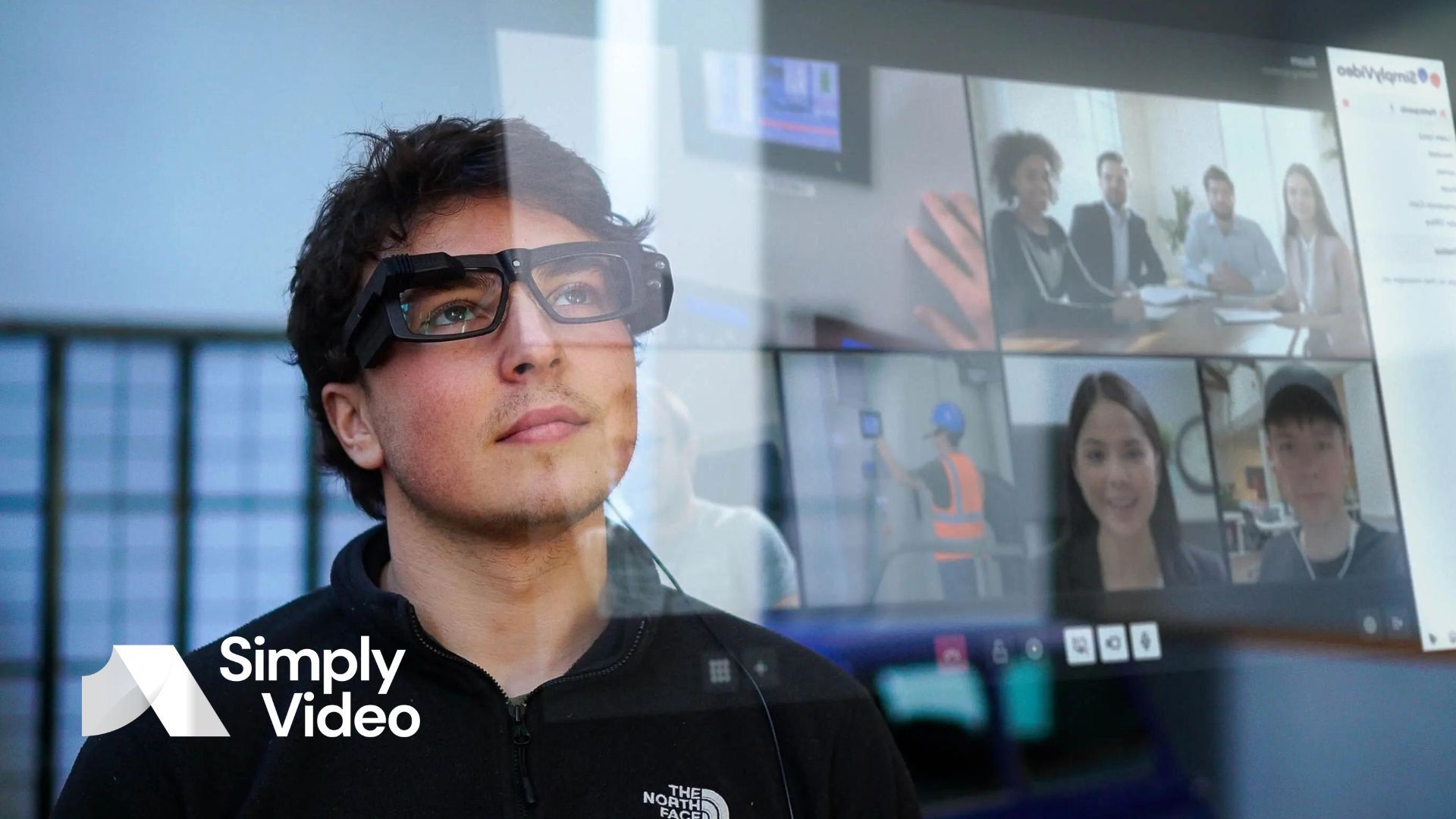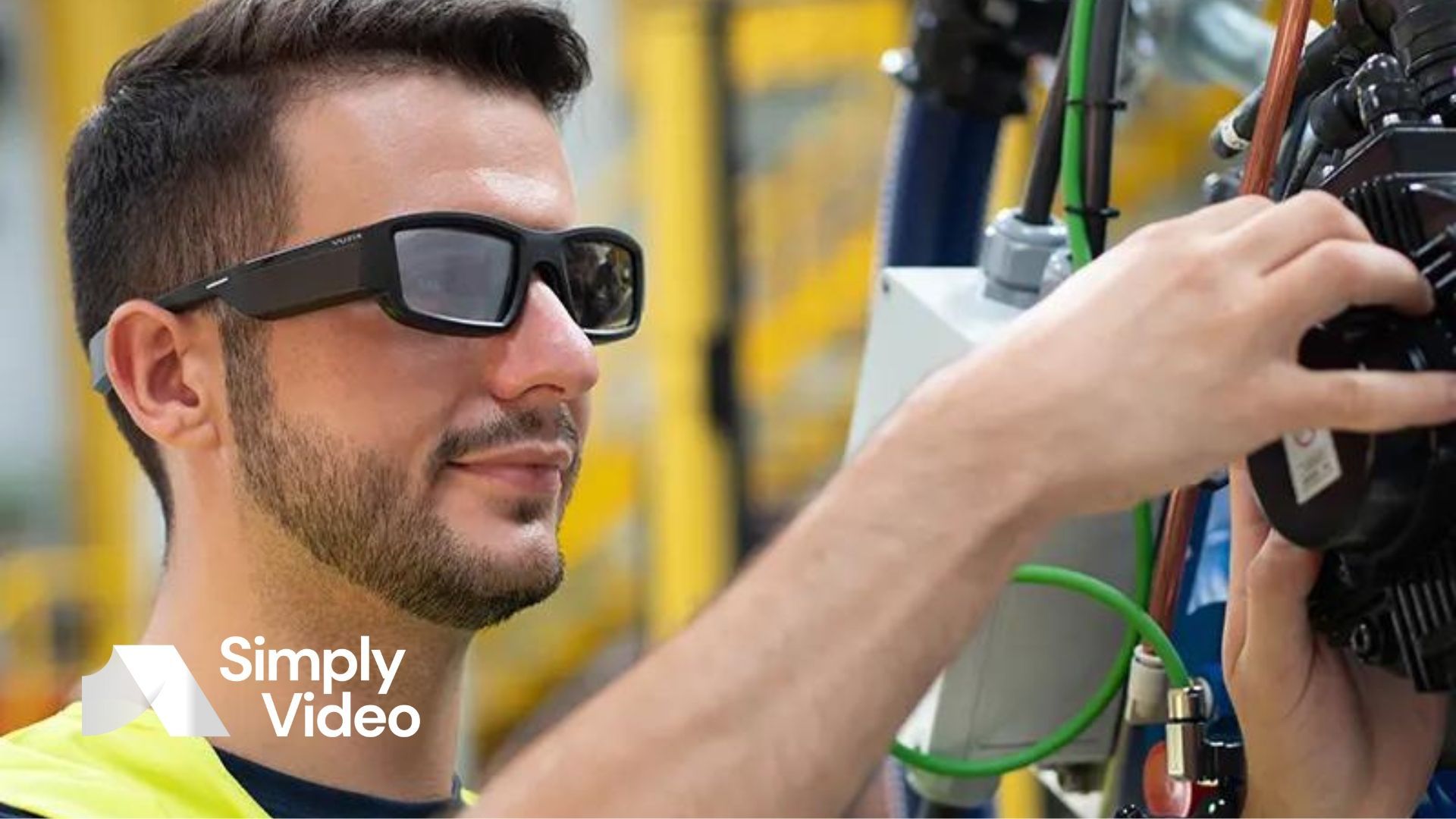What is Web 3.0, exactly?
There are very few trilogies where each film is better than the last – but could Web 3.0 be better for users than its predecessors? Read on for the facts.

The times they are a-changin'. Just when you think you've got your head around our current internet, with its deep trenches of data, cookies and targeted ads, along comes – well, all sorts of things.
We're talking artificial intelligence (AI). We're talking virtual reality (VR). The Metaverse. Blockchains. Crypto. NFTs.
"Ah yes," you murmur at a dinner party. "I hear the internet is becoming decentralised." You hurriedly add that you need the bathroom and escape through the window – anything to avoid being asked what you mean.
But fear not, for we're at your side with a layperson's guide to Web 3.0 – the next chapter of the internet built on blockchain, crypto, AI and extended reality (XR).
Here at SimplyVideo, we specialise in XR-enhanced video call software – so we're always keeping an eye on developments in the world of tech (and, to be frank, geeking out about it).
So without further ado, what is Web 3.0, exactly?
Web 3.0: a new chapter
If you're a regular user of the internet, you'll probably have had an experience a bit like this.
You're searching on your phone for an especially fetching cashmere scarf that will really tie your outfit together.
An hour later, you're reading an article that's rounding up this year's fashion trends. And there in the corner of your screen is an advert for a cashmere scarf.
Perhaps this creeps you out. Perhaps it leads you to the scarf of your dreams. Either way, it's a key feature of Web 2.0.
Web 2.0 is the current iteration of the internet that most of us use daily. Where Web 1.0 was largely read-only – and needed to be accessed by dial-up modem – Web 2.0 is interactive.
Programming languages like JavaScript and HTML5 gave rise to social media giants like Instagram and TikTok, the large-scale harvesting of user data, and interactive web platforms like YouTube and Wikipedia.
When you're on the hunt for information, you're simultaneously providing websites with data about your browsing activity and interests. These cookies are sold to third parties that target ads at you.
This isn't a temporary byproduct of Web 2.0. It's a key feature.
And while you can make a point of opting out of cookies and using incognito mode, these are only temporary solutions.
Web 3.0 doesn't exist yet. When you read about it, you're typically reading an optimistic vision of the future extrapolated from existing technologies. We don't know what it will be like – but we can make some educated guesses.
Web 3.0 will make use of blockchain technologies to decentralise data storage. In Web 2.0, data is postmarked – you find it at a specific location with a specific HTTP web address. With Web 3.0, we're promised decentralised content. This means that the vast databases held by internet giants like Meta and Google would be dismantled.
Some say that Web 3.0 will be "permissionless". Users will be able to access data without seeking permission in the form of cookies.
Web 3.0 will be accessible on a range of devices – not just smartphones, laptops, smartwatches and Alexa-style devices. It will be part of the internet of things (IoT), where everyday items have internet functionality and can be accessed from anywhere.
And it may be that the relationship between users and websites will change for the better. Instead of websites providing access in exchange for cookies, it may be that cookies are exchanged for crypto or native tokens. The user will have more control over what information they do and do not provide.
A similar shift may occur in the world of content creation. At the time of writing, content creators on platforms like YouTube get a bit of a raw deal. There's talk that in the future their efforts will be rewarded with crypto.
Finally, Web 3.0 will harness the power of AI and machine learning (ML). AI seeks to create a human-like intelligence to power software and analysis tools. ML is different – it's where you teach a machine to perform a specific task. Together, they have the power to identify patterns and analyse data at a speed no human can match.
How does XR relate to Web3?
Innovations in extended reality are touted as forming part of Web 3.0. In these decentralised, user-empowered sunlit uplands, there will be the chance to create and explore immersive 3D worlds.
This is already possible in the world of gaming – but the Metaverse has the potential to change our working lives too.
The Metaverse isn't just one thing. It's a catch-all term for any virtual universe where users are represented by digital avatars. It ranges from virtual meeting rooms to lifelike catwalks where you can buy digital outfits with cryptocurrency.
VR worlds have the capacity to transform workplace training. They can enable surgeons, paramedics and first responders to prepare for their jobs with a level of detail that's never been seen before.
And as we enter the era of hybrid working, with many people working from home, XR and Web 3.0 will give people the option to meet in virtual meeting rooms – a digitised midpoint between working from home and rubbing shoulders in the office.
Finally, there are interesting ramifications for people with disabilities. A person with limited mobility can use XR to enjoy full movement in a virtual world or even do a job that they're unable to do in the real world.
Conclusion
We don't know exactly what Web 3.0 will look like – and we certainly don't know if it will deliver on its promise of a more democratised, decentralised, user-friendly space for all to enjoy.
But we do know that it's likely to include blockchain technologies, cryptocurrencies, AI and XR. One thing's for sure – we're not in Kansas anymore…
SimplyVideo is a
video collaboration software platform built for XR and remote collaboration. Interested?
Sign up for your free 30-day trial.












